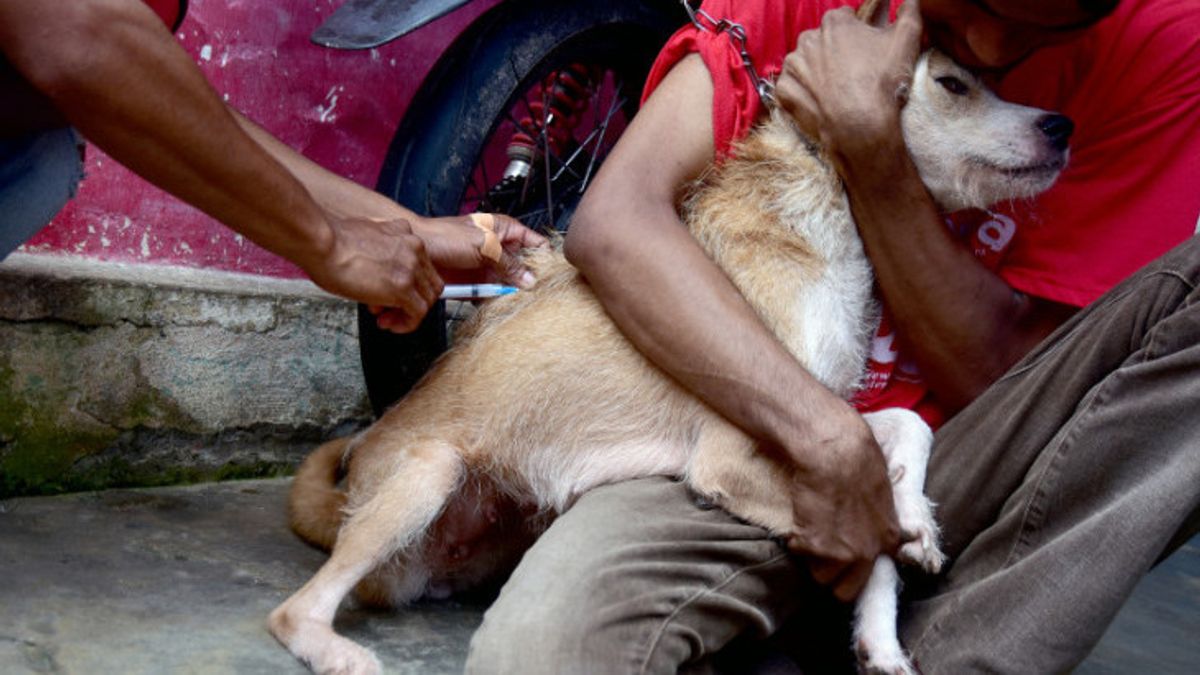JAKARTA - The Ministry of Health revealed that out of 34 provinces in Indonesia, only eight were declared free of rabies due to the bite of a stray dog.
“In Indonesia, around 26 provinces still have rabies. Only eight are free, this is important for us", said the Spokesperson for the Ministry of Health, Mohammad Syahril, in the Webinar 'Strengthening One Health Collaboration, Free Rabies 2030' in Jakarta, Wednesday, September 28.
In the webinar to commemorate World Rabies Day 2022, Syahril emphasized that rabies is still a health threat in Indonesia. Because rabies or a disease known as the mad dog has been in the community for a long time.
Syahril did not reveal in more detail the eight provinces. However, based on data from the Ministry of Health on its official website as of September 28, 2020, there are eight provinces that are declared free of rabies.
The eight provinces are Riau Islands, Bangka Belitung, Papua, West Papua, DKI Jakarta, Central Java, Special Region of Yogyakarta, and East Java.
VOIR éGALEMENT:
Meanwhile, 26 other provinces are still categorized as endemic to rabies. The extent of the spread of rabies, said Syahril, is a big scourge for Indonesia because the impacts can range from clinical impacts to high numbers of deaths due to the bites of dogs, cats, and wild monkeys.
Syahril said that the World Health Organization (WHO) had also warned that the handling of rabies could not focus on zoonoses or diseases originating from animals alone.
However, it must also include prevention related to human health and the environment in which they live from upstream to downstream, by involving all citizens.
“This means that the handling of rabies control cannot be handled by human health alone. But you have to collaborate with and from the animal side because this is a zoonosis and there is an environment. So it is called one health", he said, according to Antara.
Syahril emphasized that the Ministry of Health cannot work alone, without the help of the community. It is hoped that with the experience of the COVID-19 pandemic, all parties are ready to collaborate and coordinate in realizing global rabies elimination by 2030.
"This experience of COVID-19 makes us commit that with a disease, it must collaborate with all stakeholders, all parties who have this interest so that we keep this country free in terms of health, then the economy, social and all", he concluded.
The English, Chinese, Japanese, Arabic, and French versions are automatically generated by the AI. So there may still be inaccuracies in translating, please always see Indonesian as our main language. (system supported by DigitalSiber.id)



















